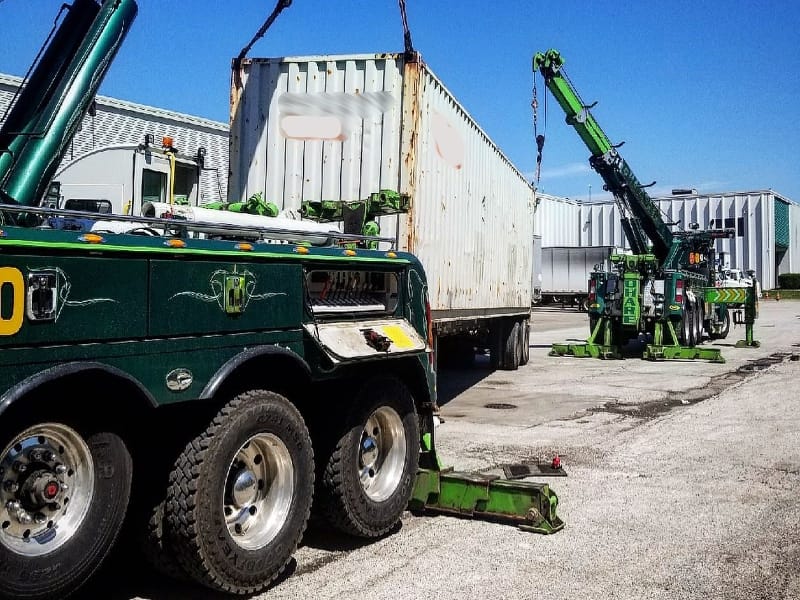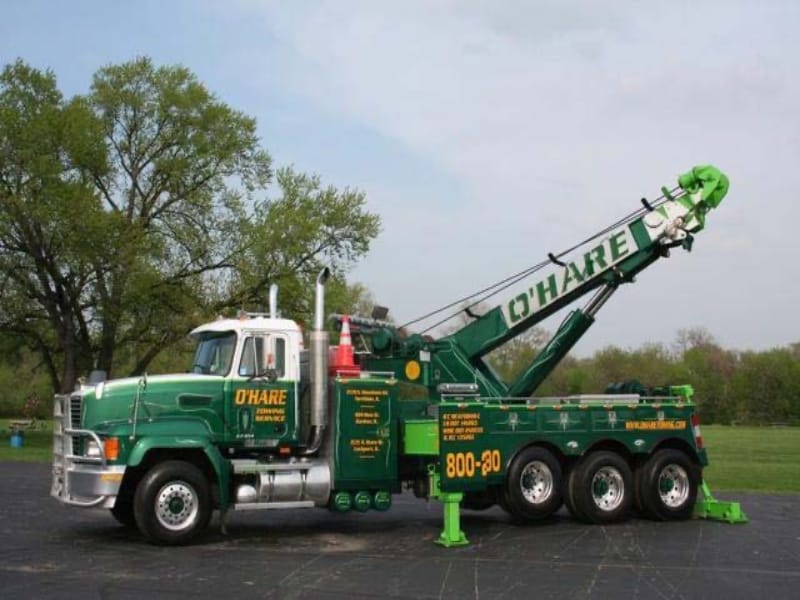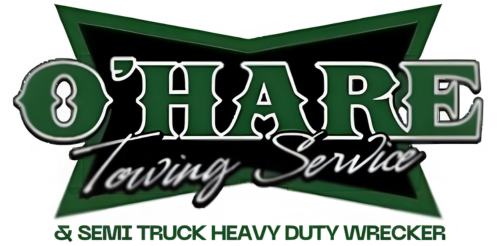Dealing With the Freight Escape
When a semi spills its load across the highway, every minute counts. The longer cargo sits on the road, the more traffic backs up, hazards build, and risks rise. That’s why we treat I-88 cargo recovery jobs as a tow truck race against the clock. We don’t get the luxury of waiting until the dust settles. No. We have to move now.

When Every Second Counts
A cargo spill is a serious safety threat. Loose freight can become a danger to other vehicles, especially if it includes industrial materials, perishables, or debris that could block lanes or scatter. Add in fuel leaks or trailer damage, and you’ve got a situation that demands immediate action.
We respond to I-88 cargo recovery scenes with urgency, strategy, and the right tools. Our team arrives ready to assess, stabilize, and act.
Our job is twofold: protect the public and salvage as much of the cargo as we can. That means we need to be ready for anything. Maybe it’s pallets of groceries that need to be repacked and lifted. Maybe it’s hundreds of gallons of spilled liquid that need containment. Whatever the situation, we work fast, and we work smart.
We also stay in close contact with local authorities and emergency services. Coordinating with police and DOT teams helps us clear lanes safely and reopen roads as soon as possible. Delays aren’t an option. We’re trained to solve problems quickly and avoid making a mess even worse.
What Makes Cargo Recovery So Time-Sensitive?
The stakes are high during an I-88 cargo recovery. Here’s why:
- Traffic builds fast on major corridors like I-88, increasing the risk of secondary accidents.
- Cargo can spoil, spill, or scatter, especially when unsecured load is concerned.
- Delays impact supply chains, especially for time-sensitive freight.
- Recovery windows shrink fast with weather, daylight, and road conditions.
Not Just Recovery. Cargo Shifting Too
Sometimes the cargo hasn’t spilled, it’s just shifted. That can be just as dangerous. A load that’s shifted inside a trailer can throw off the truck’s balance, making it unsafe to move. We handle these jobs with precision. We’ll bring in forklifts, manual labor, and load-securement gear to re-stack, re-strap, and rebalance. Then we make sure the trailer is roadworthy before anyone drives off.
Tools We Use for Fast Cargo Recovery
To keep interstates moving, we bring more than manpower:
- Skid steers and forklifts for heavy lifting and tight space maneuvering
- Flatbed trailers to haul damaged cargo or load spills
- Containment kits and absorbents for liquid and hazmat cleanup
- Straps, tarps, and pallets to repack and restack cargo on-site

O’Hare Towing Service: Fast, Reliable I-88 Cargo Recovery
At O’Hare Towing Service, we treat I-88 cargo recovery like the priority it is. We know that when freight hits the pavement, the pressure’s on to clear it quickly, safely, and without cutting corners. Our I-88 cargo recovery crew is trained to handle urgent recoveries, cargo shifts, and complex cleanup situations with precision and speed.
We bring the gear, the grit, and the grit it takes to get roads back to normal. From load transfers to hazmat containment to lane clearing, our I-88 cargo recovery team is on-call and ready to move. Need help now? We’re ready to go.
FAQ
What do we consider a cargo emergency?
A cargo emergency typically involves spilled, shifted, or unstable freight that poses a safety risk or disrupts traffic. This can include anything from hazardous materials to bulk goods blocking lanes.
How fast should a cargo load be cleared from the road?
We must clear cargo as quickly as possible to prevent accidents, reduce congestion, and avoid damage to the cargo or roadway. Most recoveries aim to restore traffic flow within a couple of hours.
Can cargo be saved after a spill?
Yes, depending on the type of cargo and the extent of the damage. Teams often sort, repackage, or transfer items to new trailers to salvage usable goods.
Is load shifting dangerous even without a spill?
Absolutely. A shifted load can make a trailer unstable, affect steering, and increase rollover risks. It’s unsafe to continue driving until the load is secured again.
Who decides when the road can reopen?
Road clearance decisions are made in coordination with local law enforcement and transportation officials based on safety, visibility, and lane conditions.
Do towing companies clean up hazardous materials?
Yes, but only if they are certified for hazmat response. Trained teams use protective gear and proper disposal methods to handle dangerous spills safely.
